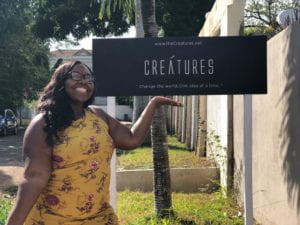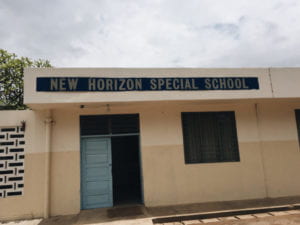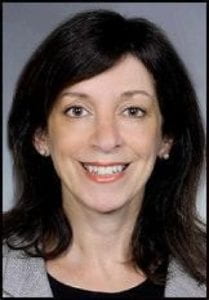 NYU Berlin Director Gabriella Etmektsoglou was recently interviewed by the German national radio station Deutschlandradio. Her focus was on the Holocaust in Greece and the rise of antisemitism in Europe today. The interview is in German and is presented in three separate parts. The first part begins here.
NYU Berlin Director Gabriella Etmektsoglou was recently interviewed by the German national radio station Deutschlandradio. Her focus was on the Holocaust in Greece and the rise of antisemitism in Europe today. The interview is in German and is presented in three separate parts. The first part begins here.
Global Dimensions
News and notes from across NYU's Campuses and Sites
Happy Holidays!
Internships at NYU Accra
Steinhardt junior Gabrielle Henoch is completing a for credit internship at the Ghanaian nonproft Street Girls Aid, an organization created to help keep young women and their families of the streets. Gabby helps take care of children during the day so their mothers can work. She loves working with the children, and she said it feels good to tell them that they can achieve their dreams.
Steinhardt junior Amanda Joa interns at Legon Hospital, by the University of Ghana. There, he responsibilities include taking anthropomorphic measurements and reading laboratory results to assess medical conditions. She also makes informative posters and sheets about nutrition and shadows dietitians throughout the wards and during consultations. She takes part in the journal club, where she edits diet sheets used in consultations.
CAS junior Red Ali is doing a non-credit internship at the creative agency Creátures. She works on the company’s Afreetune project, which provides a platform for their audience to invest in music artists. Ali writes articles, manages social media, and plans events such as Kente Kink’s ArtBeat and Afreetune’s After6. Her favorite part of the internship is getting to plan events.
NYU Shanghai Professor and Colleagues Create a New Type of Quasicrystal
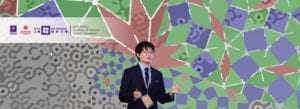 Pilkyung Moon, an assistant professor of physics and a member of the NYU-ECNU Institute of Physics at NYU Shanghai, working in collaboration with a research group from Sungkyunkwan University, have succeeded in creating a new kind of quasicrystal. In research featured on the cover of Science, Moon and his colleagues reported that a new kind of quasicrystal can be designed by the overlay of two periodic layers at a specific configuration.
Pilkyung Moon, an assistant professor of physics and a member of the NYU-ECNU Institute of Physics at NYU Shanghai, working in collaboration with a research group from Sungkyunkwan University, have succeeded in creating a new kind of quasicrystal. In research featured on the cover of Science, Moon and his colleagues reported that a new kind of quasicrystal can be designed by the overlay of two periodic layers at a specific configuration.
Solid-state materials are composed of atoms. For a long time, it had been believed that periodicity is essential to arrange atoms in an ordered fashion, and such arrangement was named a crystal. In a two-dimensional space, for example, only a few arrangement patterns, i.e., triangular, rectangular, or hexagonal arrangement, can tile space without vacancy in a periodic manner.
In 1970s and ’80s, however, researchers discovered very rare patterns which can tile space in an ordered but not periodic fashion. Such novel arrangement was newly named a quasicrystal, and has greatly expanded our understanding of the atomic order. However, quasicrystals are quite rare in nature.
Professor Joung Real Ahn’s group in Sungkyunkwan University developed an innovative idea to grow two hexagonal (graphene) layers at exactly 30°, and measured various physical properties.
Professor Moon’s theoretical calculation proved that the scattering pattern observed in the experiment can appear only at exactly 30°, and even a slight deviation of the angle (e.g., 29.958°) cannot reproduce the observed pattern. This result provides solid evidence of the fact that the research team’s system is at quasicrystalline configuration. In addition, the theoretical investigation also revealed many exotic features of quasicrystals such as the emergence of infinitely many Dirac cone replicas as well as the unusually strong scattering.
The discovery of this new kind of designer quasicrystal will expand knowledge about atomic order by enabling the systematic studies on the structures lying between periodic systems and non-periodic systems. Research findings in this study will enable scientists to build a theoretical model that can describe the physical properties of this novel structure without relying on the approximations used in the conventional quasicrystal research.
Journal Reference:
Sung Joon Ahn, Pilkyung Moon, Tae-Hoon Kim, Hyun-Woo Kim, Ha-Chul Shin, Eun Hye Kim, Hyun Woo Cha, Se-Jong Kahng, Philip Kim, Mikito Koshino, Young-Woo Son, Cheol-Woong Yang, Joung Real Ahn, “Dirac Electrons in a Dodecagonal Graphene Quasicrystal”, Science, doi: 10.1126/science.aar8412 (2018)
This post comes to us from NYU Shanghai. You can read the original here.
New PragueCast – Midnight
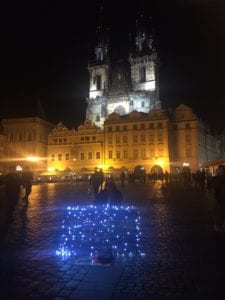 The latest edition of PragueCast, NYU’s Prague’s podcast that covers all matter of exciting topics related to the city. Created by NYU Prague students with support from NYU Prague professor and BBC correspondent Rob Cameron, PragueCast is always an interesting listen. The latest edition explores what happens when most of the city is sleeping, discovering Prague at midnight. Have a listen here – https://soundcloud.com/nyupraguecast/midnight.
The latest edition of PragueCast, NYU’s Prague’s podcast that covers all matter of exciting topics related to the city. Created by NYU Prague students with support from NYU Prague professor and BBC correspondent Rob Cameron, PragueCast is always an interesting listen. The latest edition explores what happens when most of the city is sleeping, discovering Prague at midnight. Have a listen here – https://soundcloud.com/nyupraguecast/midnight.
NYU Steinhardt J-Term Course in London on a Strength Based Paradigm for Autism
Today we are conversation with Stephen Shore and Kristie Patten Koenig about the Steinhardt course they co-taught at NYU London last J-Term and will soon be teaching again in January 2020. The course, Shifting to a Strength Based Paradigm: A Focus on Autism and Well-being Comparative Analysis Between the UK and the US, their experiences in London, and more is discussed below.
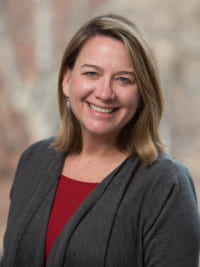 Kristie Patten Koenig, PhD, OT/L, FAOTA, Associate Professor, New York University, Department of Occupational Therapy. Dr. Patten Koenig is an occupational therapist, with a PhD in Educational Psychology who examines the efficacy of interventions utilized in public schools for children and adolescents with autism spectrum disorders. Her research focuses on utilizing a strength based paradigm and the individual with ASD’s perspective to understand the impact of these issues on quality of life and adaptive behavior in order to guide person centered interventions utilizing strengths in inclusive settings. Dr. Koenig is the Principal Investigator of the NYU Steinhardt’s ASD Nest Program, an inclusive program for children and adolescents with autism in the New York City Department of Education. She is currently Co-PI of a NSF grant entitled “IDEAS: Inventing, Designing and Engineering on the Autism Spectrum” that leverages STEM interests of middle school students with autism to develop social competence and potential career pathways. She is also PI of the GIFTED project, a 3 year grant project aimed at developing women leaders in public schools in Ghana. Dr. Patten Koenig teaches professional and post professional courses in the area of pediatric intervention, school based practice and the challenges and opportunities with autism spectrum disorders. Dr. Patten Koenig has published and presented nationally and internationally on topics related to examining the efficacy of public school interventions and examining autism from a strength based or abilities based model.
Kristie Patten Koenig, PhD, OT/L, FAOTA, Associate Professor, New York University, Department of Occupational Therapy. Dr. Patten Koenig is an occupational therapist, with a PhD in Educational Psychology who examines the efficacy of interventions utilized in public schools for children and adolescents with autism spectrum disorders. Her research focuses on utilizing a strength based paradigm and the individual with ASD’s perspective to understand the impact of these issues on quality of life and adaptive behavior in order to guide person centered interventions utilizing strengths in inclusive settings. Dr. Koenig is the Principal Investigator of the NYU Steinhardt’s ASD Nest Program, an inclusive program for children and adolescents with autism in the New York City Department of Education. She is currently Co-PI of a NSF grant entitled “IDEAS: Inventing, Designing and Engineering on the Autism Spectrum” that leverages STEM interests of middle school students with autism to develop social competence and potential career pathways. She is also PI of the GIFTED project, a 3 year grant project aimed at developing women leaders in public schools in Ghana. Dr. Patten Koenig teaches professional and post professional courses in the area of pediatric intervention, school based practice and the challenges and opportunities with autism spectrum disorders. Dr. Patten Koenig has published and presented nationally and internationally on topics related to examining the efficacy of public school interventions and examining autism from a strength based or abilities based model.
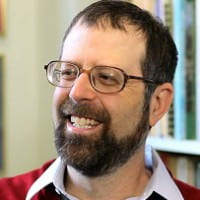 Dr. Stephen Shore is a professor at Adelphi University where his research focuses on matching best practice to the needs of people with autism. In addition to working with children and talking about life on the autism spectrum, Stephen is internationally renowned for presentations, consultations and writings on lifespan issues pertinent to education, relationships, employment, advocacy, and disclosure. His most recent book College for Students with Disabilities combines personal stories and research for promoting success in higher education. A current board member of Autism Speaks, president emeritus of the Asperger’s Association of New England, and advisory board member of the Autism Society, Dr. Shore serves on the boards of the Asperger Syndrome and High Functioning Autism Association, The US Autism and Asperger Association, the Scientific Counsel of OAR, and other autism related organizations.
Dr. Stephen Shore is a professor at Adelphi University where his research focuses on matching best practice to the needs of people with autism. In addition to working with children and talking about life on the autism spectrum, Stephen is internationally renowned for presentations, consultations and writings on lifespan issues pertinent to education, relationships, employment, advocacy, and disclosure. His most recent book College for Students with Disabilities combines personal stories and research for promoting success in higher education. A current board member of Autism Speaks, president emeritus of the Asperger’s Association of New England, and advisory board member of the Autism Society, Dr. Shore serves on the boards of the Asperger Syndrome and High Functioning Autism Association, The US Autism and Asperger Association, the Scientific Counsel of OAR, and other autism related organizations.
1. Can you both tell me about your backgrounds and how you came to know one another? Professor Koenig, I understand that your research focuses on using a strength based paradigm and the individual’s perspective in order to examine the efficacy of interventions in public schools for children an adolescents with autism spectrum disorders. You are at NYU Steinhardt and were recently in NYU London working with Dr. Stephen Shore, whom I understand is a professor at Adelphi University where his research focuses on matching best practices to the needs of people with autism.
Stephen – I am an autistic person. After eighteen months of typical development I got struck with what I call the regressive autism bomb. Like 30% of autistic people, at eighteen months I lost functional communication, had meltdowns, withdrew from the environment. In short, I became a very autistic little kid. There was so little known about autism in those days that it took my parents a whole year to find a place for a diagnosis and when they did the doctors said they had never seen such a sick child. The doctors recommended institutionalization and fortunately my parents, like so many parents do today, advocated on my behalf and they convinced the school to take me in about a year. It was during that year that they implemented what we would today refer to as an intensive home-based early intervention program and much of this program involved what Kristie and others refer to as sensory integration and sensory processing, so there was a lot of movement, there was also music, imitation, narration and so on. So with the work that my parents did, speech began to return at age four and it was also at that time that I acquired my first autistic deep interest, and that is contrasted with what the DSM [American Psychiatric Association’s Diagnostic and Statistical Manual of Mental Disorders] refers to as a restricted interest. Deep interests are fascinations and mine was taking apart watches. I would take out the back, pop out the motor, take that apart, put it together again. And the watch still worked and there weren’t any pieces left over. My parents noticed this with a mindset of asking what can our autistic son do, and they soon provided all kinds of other devices to take apart and put back together again. I entered the school that initially rejected me. I got re-evaluated. Instead of being considered a psychotic, I got upgraded to neurotic, so things were looking up.
I attended public school kindergarten at age six. I was a social and academic catastrophe. A lot of bullying, teachers didn’t quite know how to reach me, but at the same time I still had my deep interests and what I would do is go into the library and get all the books on what that interest was. It could have been astronomy, weather, earthquakes, electricity, mechanics. I would read them, take notes, copy diagrams. I remember one day in 3rd grade I had a stack of astronomy books on my desk and I was busy taking notes and copying diagrams and a teacher had told me that I would never learn how to do math, but somehow I eventually figured out just enough math to teach statistics at the university level.
Nowadays teachers are more aware of this type of deep interest and find ways to use it to teach the curriculum and make it intrinsically reinforcing. So moving on to middle and high school, most people find middle and high school difficult. It was actually easier for me because I was able to engage in my deep interest in music. I joined the band. I got so fascinated with music that I got it into my head that I needed to learn how to play all the instruments. I’d spend hours in the instrument closet figuring them out. I didn’t get them all down, but I did learn to play about fifteen instruments. And then when I heard that a requirement for a degree in music education was that you had to learn all the instruments, well, it didn’t seem better than that. So, off to college I went. There were no autism support colleges like the program at NYU and the one at Adelphi University. At that time it was thought that autistic people couldn’t even talk. Anyways, there I was, I got through my bachelor’s degree and went on to the master’s program in the same subject and then on to a doctorate in music education. I got through all the coursework. Then I started getting more interested in autism. So I defected over to the school of education and got my degree in special education with a focus on autism. During that time, during my doctoral degree, I had written a few books including an autobiography and another book on self-advocacy for autistic individuals, understanding autism for dummies, and I might have written more at that time but my advisor kind of gave me what for and said stop writing books and finish your dissertation. So I did. And then I was graduating in 2008 and beginning work as a professor of special education at Adelphi university and also working at NYU as well. So I divide my time now between teaching and researching on mostly autism related things, traveling and talking about autism, consulting about it around the world. I have talked about autism in 48 countries so far. The number of those countries is growing through my work with Kristie and with co-presentations and collaborations. Kristie and I met in 2005 at the world autism congress in Cape Town, South Africa. We connected, we started doing various projects collaboratively, talking with each other, and it has now grown to a point where Kristie and I are collaboratively teach a course focused on strength-based supports to support autistic individuals. We have taught the course now three times. Two times on campus and this last January we taught in London. What else do I do? I give music lessons to autistic children and write books and articles. I am a clinical assistant professor of special education at Adelphi University.
Kristie – I am an Associate Professor and Chair of the Department of Occupational Therapy at Steinhardt School of Culture, Education and Human Development. I am also the principal investigator of the NYU ASD Nest Support Project that supports the New York City’s Department of Education’s ASD Nest program which is the largest inclusion program in the country. This program uses, like Stephen said, a strengths-based approach. Stephen has done several projects with the Nest program. I have learned throughout my life as a professional and researcher that anything I do around autism isn’t authentic unless I am collaborating closely and authentically with autistic individuals and stakeholders. So Stephen and I started off in different areas, though now we are increasingly authentically collaborating. This included living in the same flat for almost three weeks in London and we are still talking to each other! So it is really that we both feel the same way and that we both value each other’s input. We each have our own areas that we look at and things that we do, but when we both come together it really is an enjoyable collaboration. Often he will be on a plenary that I am moderating, for example at our national conference in April, with other autistic individuals talking about what OT should be researching and setting the agenda and priorities from their perspective.
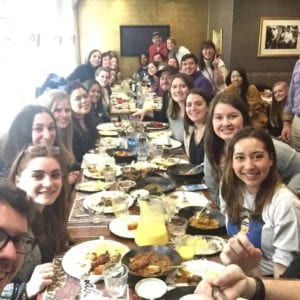 2. I understand that you recently lead a course together in NYU London, Shifting to a Strength Based Paradigm: A Focus on Autism and Well-being Comparative Analysis Between the UK and the US. Can you describe the purpose of the course? What kinds of students participated and how was the course structured?
2. I understand that you recently lead a course together in NYU London, Shifting to a Strength Based Paradigm: A Focus on Autism and Well-being Comparative Analysis Between the UK and the US. Can you describe the purpose of the course? What kinds of students participated and how was the course structured?
Kristie– The purpose was to really focus on this shift to strengths because a lot of people get trained in a deficit model of remediation with autistic individuals. Stephen comes from special education. I come from occupational therapy. We really like to have a diverse group of students that can kind of go back and touch their respective disciplines after being “brainwashed” with a strengths based approach by us. This is a graduate course and we had over 40 applications for the first time that it was offered as a global course in London so it was a successful course right out of the gate globally. We had 28 graduate students from ten different programs.
3. How has your work together on this comparative analysis and your experience in London informed your future research?
Kristie – Absolutely. One example I can mention was a meeting with autistic researchers and non-autistic researchers at London South Bank University where they have a collective called PARC – Participatory Autism Research Collective – that truly is a partnership between autistic researchers and non-autistic researchers. I am in discussions now with Stephen and a number of other people to do the same type of collaborative research collective here. Also we met with people from the University College London CRAE – the Centre for Research in Autism Education – and they have a project called “Know your Normal” which is a collaboration between PARC researchers and researchers ad UCL about mental health and knowing what is normal for you as an autistic individual and knowing what is not normal so you can seek out assistance and help and really know when you are not feeling like you should. So, for example, an autistic individual lines up things normally or puts things in order normally, that is not a sign of a mental health issue and that is where that phrase “know your normal” comes in. I actually talked to people at the Department of Education and we are actually looking to bring Laura Crane and people from the “Know your Normal” project to do some work with us and the Department of Education and the ASD Nest support project and here at NYU with our autistic students. Those are two examples that come to mind.
Stephen – We had great experiences and saw how they are moving research and benefitting autistic people. We also got invited to the House of Commons where they were interested in my experiences around the world. I remember them asking me if I could rank countries in order of service provision and what I found is that it is impossible to rank countries but what one can do is look into areas of best practices in Peru, Russia, Japan, China, and so on. And there is always much to learn from people in other countries supporting autistic individuals. There was the autistic choir Kristie mentioned which was a choir of autistic individuals who just recently felt comfortable enough to disclose their being autistic to the greater public so that is very exciting.
4. I understand that you both were invited to two meetings at the British House of Commons and the Member of Parliament Stephen Twigg to discuss autism, best practices in supporting people on the autism spectrum, and the ASD Nest Support Project. Can you tell us how those meetings came about and what was discussed? Do you expect further engagement within the UK?
Stephen – They were very interested in what I had to offer, my insights in terms of supporting autistic individuals in other countries and I felt that at the end of it they had understood that it is probably not that useful to be ranking countries in terms of support but so much more useful to be studying what is happening in particular countries. So that was exciting.
Kristie – They were familiar with Stephen’s work and by extension my work. Stephen is a rock star internationally. And then I came along to talk about the work we are doing on inclusion which they were very interested in. They are ahead of us I think in engaging autistic individuals in research and partnerships and I think that they are doing some great work in terms of collaboration with the autistic stakeholder community. One of the things that we talked to Stephen Twigg about is just this idea of comprehensive inclusion programs. NYU’s ASD Nest support project in NY demonstrates that autistic children are capable of doing grade-level work with the proper supports. Often with inclusion, if the kids are capable of doing grade-level work they just kind of throw them in the right class and hope for the best and may provide some therapy where it is not really integrated into a comprehensive program and that is not really the best way to educate and do inclusion. So they were very interested in our program. We have already replicated the program in Denmark and we are in talks right now with school districts in California, Florida, we have another one that just signed a contract with us in NY. So we have had success replicating that model and there seemed to be interest for London as well. So we’ll continue to see what happens there.
5. While at NYU London, Professor Shore was interviewed by BBC Russia about his work with autistic children, including music lessons and other offerings. Professor Shore – Can you tell us more about this work and how it drew the attention of the BBC?
Stephen – I have been to Russia eight times already and I have been involved with an organization called Our Sunny World. This is a center for mainly autistic individuals, 350 at last count. What I found fascinating about the center is that they too follow a strengths-based approach and the idea of matching reasoned practice with specific individual needs. So, for example, they look at applied behavior analysis as one of the tools that can be helpful for autistic individuals as well as daily life therapy, and other methods. I find that very exciting. There is also a large sensory component that I find very helpful as well. It is organizations like this that perhaps aren’t that well known but are doing some incredible work and we better collaborate with them.
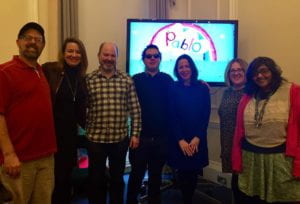 6. As part of you course, you had some remarkable guest lectures and panel discussions, including a panel related to Pablo, a BBC Children’s program about a five-year-old autistic boy. The panelists included the program’s creator, Grainne McGuinness, its head writer Andrew Benner (who is also the head writer for the popular children’s show Thomas & Friends), autistic writer and the voice of Wren on the show Sumita Majumdar, and an autistic consultant Paul Issacs. What did you and the students learn about the creation of the show, its production, and its audience? How has it been received? Why is it important to have autistic characters portrayed in children’s television?
6. As part of you course, you had some remarkable guest lectures and panel discussions, including a panel related to Pablo, a BBC Children’s program about a five-year-old autistic boy. The panelists included the program’s creator, Grainne McGuinness, its head writer Andrew Benner (who is also the head writer for the popular children’s show Thomas & Friends), autistic writer and the voice of Wren on the show Sumita Majumdar, and an autistic consultant Paul Issacs. What did you and the students learn about the creation of the show, its production, and its audience? How has it been received? Why is it important to have autistic characters portrayed in children’s television?
Stephen – It lends a certain amount of authenticity when you have autistic people involved in anything related to autism. In this case we’re talking about a tv series, but the same holds for research, the same holds for education, which is why Kristie and I deliver our course collaboratively. I provide the autistic point of view as related to education, Kristie provides the professional a point of view of occupational therapy. Working together in education, in research, in media, and in all aspects involving autistic individuals provides a more authentic view of autism and better illustrates what we can do to promote fulfilling and productive lives.
Kristie – I think that the Pablo show is unique in certain ways. There are a few shows featuring autistic characters. For example Sesame Street has Julia, the autistic Muppet, and the puppeteer for Julia is a mother of a child with autism. With Pablo what they did was really beautiful. The head writer Andrew Benner set out to talk to adults that are autistic in the UK about their experiences and challenges to simply get their perspective on the show. And I think the originator Grainne McGuinness was really mindful of talking to autistic individuals and including their voices. What happened was that as he went around he had a whole bunch of autistic writers and autistic actors that he could hire and I think that just like in different fields, autistic individuals are looking for employment opportunities. And he hired them. So to be gainfully employed in children’s television representing your authentic selves is really powerful. A lot of times tv shows will portray someone that’s autistic with a non-autistic actor which is unfortunate, really unfortunate, when there are a lot of autistic actors who are looking for work. So this show becomes an extension of their worlds and their perspectives and because of that it just becomes a really funny, quirky show. Not necessarily because they are all autistic but because of their point of view that it is an autistic point of view that makes it really interesting and something that any kid can relate to.
7. Do you believe it is important for research relating to autism and interventions to have an international perspective? Was there anything you learned while in London that was surprising, noteworthy, or that may influence your work moving forward?
Stephen – Interestingly, after we had gone through the course, we felt that all of the guest presenters were great and it all went really well and there weren’t any regrets with what we had done which was really cool.
Kristie – We really saw the transformation in the students. It was really something to see. Their transformation of really looking at something in a fundamentally different way. This was perhaps in part because the students were all from different programs so may not have been exposed to this kind of work before. And the predominant narrative around autism is this kind of remediation, let’s fix it, let’s normalize behavior so those messages are often received in many programs so this was a very opposite message.
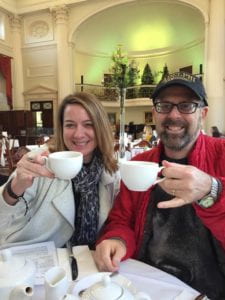 8. Is there anything else that you would like to share about your work, your time at NYU London, or beyond?
8. Is there anything else that you would like to share about your work, your time at NYU London, or beyond?
Stephen – It is important that the primary question be: “What can the autistic individual do?” That said, there can be significant challenges that come with being autistic and if there weren’t, why would this course exist? However, we need to flip the paradigm around that Kristie so beautifully shows on her power point slide when we look at typical reports of presenting problems – there is a big section on the top weighing down this little section on the bottom with one or two lines presenting strengths and it needs to be the other way around.
Departing NYU Florence Director Ellyn Toscano Given Keys to the City
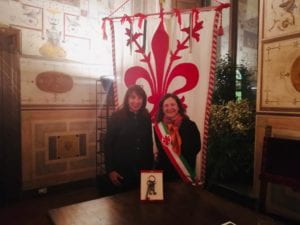 NYU Florence Director NYU Ellyn Toscano will soon be departing and assuming a new position with NYU in Brooklyn. On 29 November, the city of Florence recognized her contribution to the city by presenting her with a set of keys to the city. This honor was given in recognition of her “commitment to sharing her knowledge and love of the city of Florence with generations of students.” Ellyn is the founder and director of both La Pietra Dialogues and The Season, which have contributed significantly to NYU Florence / Villa La Pietra’s place as an intellectual and cultural center in the city of Florence.
NYU Florence Director NYU Ellyn Toscano will soon be departing and assuming a new position with NYU in Brooklyn. On 29 November, the city of Florence recognized her contribution to the city by presenting her with a set of keys to the city. This honor was given in recognition of her “commitment to sharing her knowledge and love of the city of Florence with generations of students.” Ellyn is the founder and director of both La Pietra Dialogues and The Season, which have contributed significantly to NYU Florence / Villa La Pietra’s place as an intellectual and cultural center in the city of Florence.
Volunteering at NYU Accra
There are dozens of opportunities for students to volunteer while at NYU Accra. Students tend to participate in volunteer opportunities involving children. Getting to know the youth of Accra has served as a way for NYU Accra students to gain a unique perspective on specific slices of life in the city, and it allows students to give back to the community they call home for the semester.
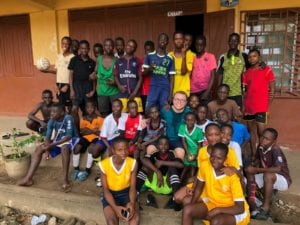 SPS sophomore Arik Rosenstein is a huge football (soccer) fan. In fact, he decided to study abroad in Accra because he wanted to understand how the sport serves communities here. When Arik arrived, he quickly worked with Victor Yeboah, NYU Accra’s community service director, to find a school in the neighborhood of Labone whose soccer team he could coach on Fridays. He balances this with an internship at the professional football team, Accra Hearts of Oak.
SPS sophomore Arik Rosenstein is a huge football (soccer) fan. In fact, he decided to study abroad in Accra because he wanted to understand how the sport serves communities here. When Arik arrived, he quickly worked with Victor Yeboah, NYU Accra’s community service director, to find a school in the neighborhood of Labone whose soccer team he could coach on Fridays. He balances this with an internship at the professional football team, Accra Hearts of Oak.
CAS junior Natasha Roy volunteers at New Horizon Special School, a school for special needs people in Accra, twice a week. New Horizon Special School is located in the nearby neighborhood of Cantonments and serves children and adults with learning disabilities by providing both education and workshops for vocational skills.. NYU has a tradition of students volunteering at New Horizon, and Natasha helps the teachers in a classroom for 11-16-year-olds.
NYU Washington, DC – Assessing the 2018 Election Results: Governance and Political Implications Assessing the 2018 Election Results: Governance and Political Implications
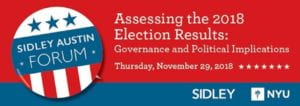 On November 29 at NYU Washington, DC, Sidley Austin LLP and NYU School of Law are proud to host the 3rd Annual Sidley Austin Forum.
On November 29 at NYU Washington, DC, Sidley Austin LLP and NYU School of Law are proud to host the 3rd Annual Sidley Austin Forum.
The program will examine the results of the 2018 congressional midterms and state and local contests around the country to assess their implications for governance and the political landscape.
The Sidley Austin Forum is held annually and co-hosted by Sidley Austin LLP and NYU School of Law’s Legislative and Regulatory Process Clinic. The Forum explores topics critical to American democracy, citizen engagement, and public service. Over Sidley’s 150-year history, the firm has been committed to honoring and supporting the rule of law in our democracy. Sidley has built a reputation as a premier legal adviser for global businesses and financial institutions with 1,900 lawyers in 20 offices worldwide.
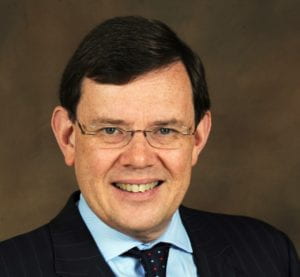 This year’s Keynote speaker is Henry Olsen, a senior fellow at the Ethics and Public Policy Center, studies and provides commentary on American politics. His work focuses on how America’s political order is being upended by populist challenges, from the left and the right. He also studies populism’s impact in other democracies in the developed world.
This year’s Keynote speaker is Henry Olsen, a senior fellow at the Ethics and Public Policy Center, studies and provides commentary on American politics. His work focuses on how America’s political order is being upended by populist challenges, from the left and the right. He also studies populism’s impact in other democracies in the developed world.
He is the author of The Working Class Republican: Ronald Reagan and the Return of Blue-Collar Conservatism and The Four Faces of the Republican Party, co-authored with Dante Scala. Mr. Olsen is also an editor at UnHerd.com, where he writes about populism and politics around the world, and he is a regular contributor to American Greatness, City Journal, and World Magazine.
Mr. Olsen’s work has been featured in many prominent publications, including The New York Times, The Wall Street Journal, The Washington Post, National Review, The Guardian, and The Weekly Standard. His pre-election predictions of the 2008, 2010, 2012, and 2014 elections were particularly praised for their remarkable accuracy. In the 2016 campaign, he accurately identified the factors fueling the rise of Donald Trump early in the race, and his election eve predictions were more accurate than those of virtually any other major analyst or commentator.
Mr. Olsen has worked in senior executive positions at many center-right think tanks. He most recently served from 2006 to 2013 as Vice President and Director, National Research Initiative, at the American Enterprise Institute. He previously worked as Vice President of Programs at the Manhattan Institute and President of the Commonwealth Foundation.
Mr. Olsen started his career as a political consultant at the California firm of Hoffenblum-Mollrich. He then worked with the California State Assembly Republican Caucus before attending law school. He served as a law clerk to the Honorable Danny J. Boggs on the U.S. Court of Appeals for the Sixth Circuit and as an associate at Dechert, Price & Rhoads. He has a B.A. from Claremont McKenna College and a J.D. from the University of Chicago Law School, where he served as Comment Editor for the University of Chicago Law Review.
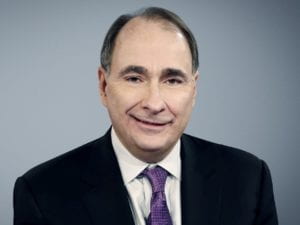 This year’s panelists include David Axelrod, Bob Bauer, Emily Ekins, Ronald Klein, Megan McArdle, Sam Stein, Doug Thornell, and Ben Wittes. For more information, see here.
This year’s panelists include David Axelrod, Bob Bauer, Emily Ekins, Ronald Klein, Megan McArdle, Sam Stein, Doug Thornell, and Ben Wittes. For more information, see here.
In Conversation with NYU Prague Literature Professor Tomas Vrba
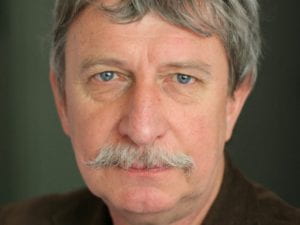 Tomas Vrba has been teaching literature at NYU Prague since 1999. He studied philosophy at Charles University, but after signing the human rights document Charter 77 in 1977, he had to take menial jobs until the Communist regime collapsed. Since then he has worked as a journalist, editor, and translator. Most recently he translated “Fascism: A Warning,” the latest book of his good friend Madeleine Albright, which is coming out in Czech next month. He also translated her earlier book, Prague Winter, and he is currently chairing the boards of the Forum 2000 Foundation and the Archa Theatre.
Tomas Vrba has been teaching literature at NYU Prague since 1999. He studied philosophy at Charles University, but after signing the human rights document Charter 77 in 1977, he had to take menial jobs until the Communist regime collapsed. Since then he has worked as a journalist, editor, and translator. Most recently he translated “Fascism: A Warning,” the latest book of his good friend Madeleine Albright, which is coming out in Czech next month. He also translated her earlier book, Prague Winter, and he is currently chairing the boards of the Forum 2000 Foundation and the Archa Theatre.
How did you start working at NYU Prague?
Jiri Pehe, NYU Prague Director and I knew each other from Forum 2000, and he asked me to teach the literature class, as I had been involved in publishing since 1990. At the time I was wrapping up my time as a journalist (I was editor in chief of the New Presence magazine). Since then, I’ve been teaching here as well for other international programs.
What classes did you initially teach?
Originally I taught two courses at NYU Prague- Modern European Literature and Contemporary Central and East European literature. We were a part of the Russian Slavic department, so we had to have East Europe in the title…. But from the beginning, we all agreed that it would be better to focus on the Central European content. After a few years we realized that it would make more sense to combine the courses. I try to show literature in a larger framework- something between cultural history and literature. I have always argued that a novel can be a good source of history. The last eighty years of Czechoslovak literature have been strongly connected to history and politics.
Do you think the students have changed since you started teaching at NYU Prague?
I can distinguish the two different generations. Today’s students could theoretically be children of the first students I taught. Of course they have different life experiences. Contemporary students read less, but their curiosity is the same as it was twenty years ago.
At the beginning of every semester, I ask the students which countries they have visited – twenty years ago, this was usually their first trip abroad. Now, virtually everyone has been somewhere. Of course you have a different experience when it’s your first time abroad.
What is one of your strongest memories from your class?
Some of my top moments in class have been during class debates. Czech students usually have read more, but they are shy to speak – here it’s the opposite.
I remember one student who wasn’t a big reader – actually he admitted that he had never read a novel – so I asked him to read one. He was studying hotel management and he wrote an excellent paper about I Served the King of England [Bohumil Hrabal’s novel set in a hotel] which he divided in two parts. One part was about the reader’s experience, and the other part was an analysis of the organization of the hotel in the novel – the student really understood and appreciated how well it was organized in the 1920s.
What do you think the students get out of coming to Prague?
I always ask the students to write about their Prague experiences- you can do that in a literature class – and I find out how they’ve discovered their individual Pragues. Most are soon fed up with the tourist industry, and they discover things outside of the center, in the suburbs where they live – Holesovice, Vinohrady. For many of them Prague is quite a romantic and mysterious experience.
Do you think students today are as interested in literature as they were 20 years ago?
Originally I had 10-15 students in my class. Now, sometimes I won’t teach for a semester because there isn’t enough interest. Generally, I am afraid that there is something dangerous happening globally. Courses in the humanities are more and more limited even at the top universities. Oxford and Cambridge have started offering management courses in recent years.
You have recently been involved in projects connected to the 40th anniversary of Charter 77 – curating exhibitions that have even toured to the USA. Do you find that young people are interested in topics relating to the former Communist regime?
Yes, I saw a lot of interest last year during the 40-year anniversary events connected to 1977 – and this year, I see a lot of interest in the 50-year anniversary of the Prague spring and the Soviet invasion in Prague. Ten years ago, my daughter said to me there’s nothing to protest against! Well, now there is a lot- and young people are active in elections, they are engaged. Ten years ago, the world looked all right – now, it’s gone crazy.
What has meant the most to you as an NYU Prague professor?
Last year I was invited to a conference at the Czech and Slovak museum in Cedar Rapids, Iowa, where I attended a panel of American professors of Czech language and literature. During the introductions, one of the scholars on the panel said that she was there because of Professor Vrba, who she studied with in Prague. That was nice.
The best recompense for me has always been looking at half a dozen, a dozen pairs of bright eyes. That’s still true – NYU students are very motivated.

